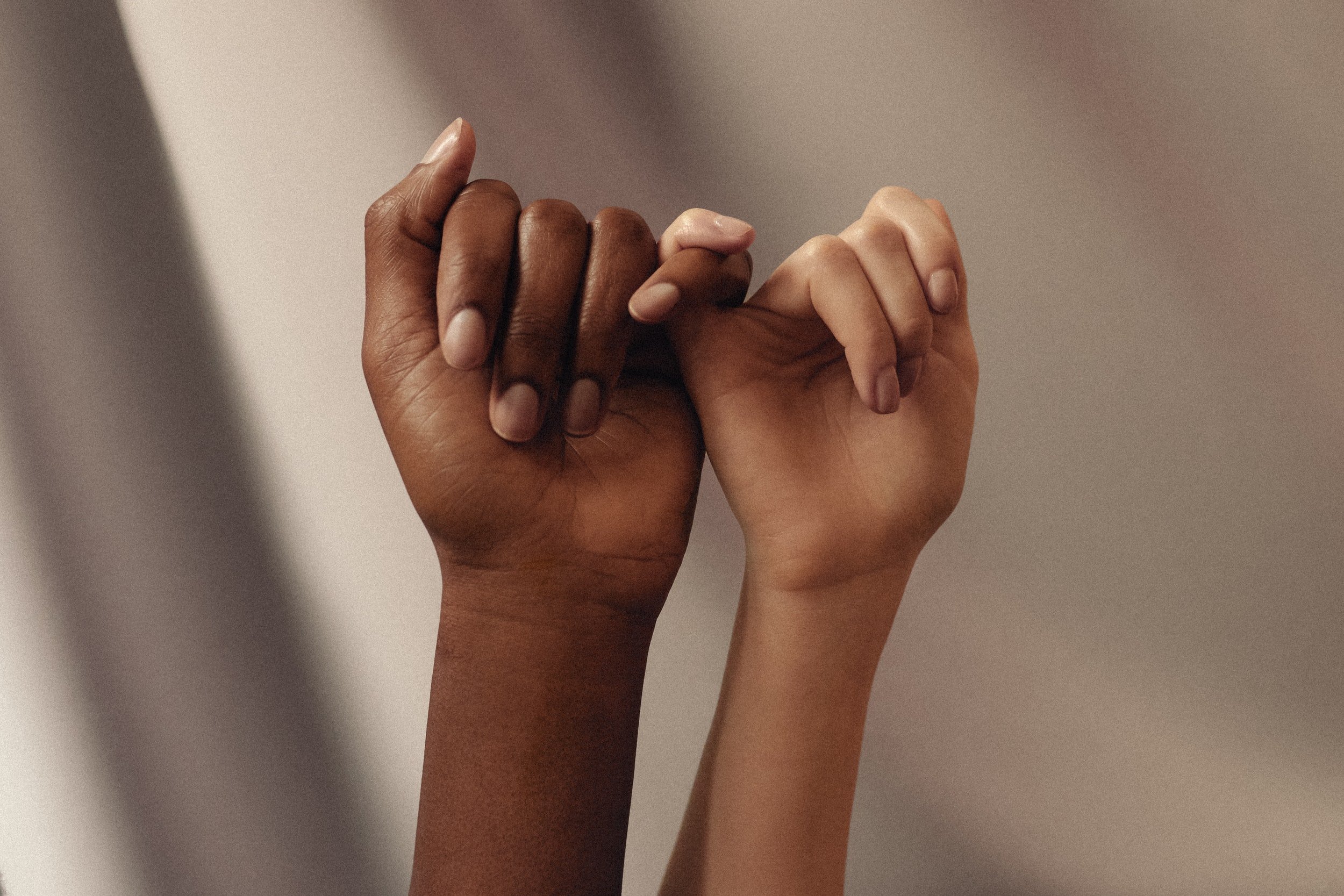
Consent and Healthy Relationships
TRIGGER AND CONTENT WARNING: This page will mention abuse in toxic relationships and different forms of abuse. Our safeguarding teams contact can be found at the bottom of this page as well as other support links.

Consent
TRIGGER AND CONTENT WARNING: This section mentions sexual assault and rape.
Consent is a voluntary, enthusiastic, and clear agreement between the participants to engage in specific sexual activity.
There is no room for different views on what consent is. People incapacitated by drugs or alcohol cannot consent.
If clear, voluntary, coherent, and ongoing consent is not given by all participants, it’s sexual assault. There’s no room for ambiguity or assumptions when it comes to consent, and there aren’t different rules for people who’ve been intimate before.
Non-consensual sex is rape.
Clear
Consent is clear and unambiguous. Is your partner enthusiastically engaging in sexual activity? Have they given verbal permission for each sexual activity? Then you have clear consent.
Silence is not consent. Never assume you have consent — you should clarify by asking.
Ongoing
You should have permission for every activity at every stage of a sexual encounter. It’s also important to note that consent can be removed at any time — after all, people do change their minds!
Coherent
Every participant in sexual activity must be capable of granting their consent. If someone is too intoxicated or incapacitated by alcohol or drugs, or is either not awake or fully awake, they’re incapable of giving consent.
Failure to recognize that the other person was too impaired to consent is not “drunk sex.” It’s sexual assault.
Voluntary
Consent should be given freely and willingly. Repeatedly asking someone to engage in a sexual act until they eventually say yes is not consent, it’s coercion.
Consent is required for everyone, including people who are in a committed relationship or married. No one is obliged to do anything they don’t want to do, and being in a relationship doesn’t obligate a person to engage in any type of sexual activity.
It’s important to understand that any type of sexual activity without consent, including touching, fondling, kissing, and intercourse, is a form of sexual assault and may be considered a crime.

Tea and Consent
If you’re still struggling with consent just imagine instead of initiating sex you’re making them a cup of tea. Animation courtesy of Emmeline May at rockstardinosaurpirateprincess.com and Blue Seat Studios
Learn more about consent via Consent Is Everything
Trigger and content warning: External links will talk about non-consensual sex and uses the word rape. Support can be found at the bottom of this page

Signs of a Healthy Relationship
Healthy relationships share certain characteristics that young people should be taught to expect. They include:
Mutual respect: Respect means that each person values who the other is and understands the other person’s boundaries.
Trust: Partners should place trust in each other and give each other the benefit of the doubt.
Honesty: Honesty builds trust and strengthens the relationship.
Compromise: In a dating relationship, each partner does not always get their own way. Each should acknowledge different points of view and be willing to give and take.
Individuality: Neither partner should have to compromise who they are, and their identity should not be based on a partner’s. Each should continue seeing their friends and doing the things they loves. Each should be supportive of their partner wanting to pursue new hobbies or make new friends.
Good communication: Each partner should speak honestly and openly to avoid miscommunication. If one person needs to sort out their feelings first, the other partner should respect those wishes and wait until their partner is ready to talk - This is also a good sign of boundaries..
Anger control: We all get angry, but how we express it can affect our relationships with others. Anger can be handled in healthy ways such as taking a deep breath, counting to ten, or talking some time away from the situation to calm yourself and understand what’s made you angry.
Fighting fair: Arguments happen, but it’s important that both people are able to express their feelings and feel heard without the other person taking things personally or getting angry.
Problem solving: Dating partners can learn to solve problems and identify new solutions by breaking a problem into small parts or by talking through the situation.
Understanding: Each partner should take time to understand what the other might be feeling.
Self-confidence: When dating partners have confidence in themselves, it can help their relationships with others. It shows that they are calm and comfortable enough to allow others to express their opinions without forcing their own opinions on them.
Being a role model: By embodying what respect means, partners can inspire each other, friends, and family to also behave in a respectful way.
Healthy sexual relationship: Dating partners engage in a sexual relationship that both are comfortable with, and neither partner feels pressured or forced to engage in sexual activity that is outside his or her comfort zone or without consent. It’s also important to know that sex isn’t for everyone and some people may not feel comfortable engaging in sexual activity - This should not be taken personally, instead you should listen to your partner and again - respect their boundaries.
SOURCE: YOUTH.GOV

Signs of a Unhealthy Relationship
Unhealthy relationships are marked by characteristics such as disrespect and control. It is important for youth to be able to recognize signs of unhealthy relationships before they escalate. Some characteristics of unhealthy relationships include:
Control: One dating partner makes all the decisions and tells the other what to do, what to wear, or who to spend time with. Unreasonably jealous, and/or tries to isolate the other partner from their friends and family.
Hostility: One dating partner picks a fight with or antagonizes the other dating partner. This may lead to one dating partner changing their behaviour in order to avoid upsetting the other.
Dishonesty: One dating partner lies to or keeps information from the other. One dating partner steals from the other.
Disrespect: One dating partner makes fun of the opinions and interests of the other partner or destroys something that belongs to the partner.
Dependence: One dating partner feels that they “cannot live without” the other. They may threaten to do something drastic if the relationship ends.
Intimidation: One dating partner tries to control aspects of the other's life by making the other partner fearful or timid. One dating partner may attempt to keep their partner from friends and family or threaten violence or a break-up.
Physical violence: One partner uses force to get their way (such as hitting, slapping, grabbing, or shoving).
Sexual violence: One dating partner pressures or forces the other into sexual activity against their will or without consent.
SOURCE: YOUTH.GOV

Signs of Domestic Violence and Abuse
TRIGGER AND CONTENT WARNING: This section will talk about different signs and forms of abuse. There is mention of death threats, sexual assault/rape and abuse during pregnancy. If you or someone you know is in an abusive relationship please reach out to the support systems we have provided and/or our safeguarding team.
There are different kinds of abuse, but it's always about having power and control over you. If you answer yes to any of the following questions, you might be in an abusive relationship. Source: NHS
Emotional abuse
Does your partner ever:
Belittle you, or put you down?
Blame you for the abuse or arguments?
Deny that abuse is happening, or downplay it?
Isolate you from your family and friends?
Stop you going to college or work?
Make unreasonable demands for your attention?
Accuse you of flirting or having affairs?
Tell you what to wear, who to see, where to go, and what to think?
Control your money, or not give you enough to buy food or other essential things?
Monitor your social media profiles, share photos or videos of you without your consent or use GPS locators to know where you are?
Threats and intimidation
Does your partner ever:
Threaten to hurt or kill you?
Destroy things that belong to you?
Stand over you, invade your personal space?
Threaten to kill themselves or the children?
Read your emails, texts or letters?
Harass or follow you?
Physical abuse
The person abusing you may hurt you in a number of ways.
Does your partner ever:
Slap, hit or punch you?
Push or shove you?
Bite or kick you?
Burn you?
Choke you or hold you down?
Throw things?
Sexual abuse
Sexual abuse can happen to anyone.
Does your partner ever:
Touch you in a way you do not want to be touched?
Make unwanted sexual demands?
Hurt you during sex?
Pressure you to have unsafe sex – for example, not using a condom?
Pressure you to have sex?
If your partner has sex with you when you do not want to, this is rape.
Have you ever felt afraid of your partner?
Have you ever changed your behaviour because you're afraid of what your partner might do?
If you think you may be in an abusive relationship, there are lots of people who can help you. We’ve made sure to add some support links below this page as well as our Safeguarding teams contact.
1 in 3 cases of domestic violence and abuse against women starts during pregnancy. If the relationship is already abusive, it can get worse.
Find out more about domestic abuse in pregnancy via the NHS website.

Support

ESCG Safeguarding Team
If you or someone you know at college has experienced or is struggling with mental health difficulties, or any of the subjects mentioned, members of our Safeguarding and Wellbeing team are available to help whenever you need them.
HASTINGS: Lydia Leonard
Lydia.Leonard@escg.ac.uk / 07848442081
EASTBOURNE: Helen Ding
Helen.Ding@escg.ac.uk / 07980049312
LEWES: Julia Proven
Julia.Proven@escg.ac.uk / 07823668772
Keeping Safe Week / Consent and Healthy Relationships











